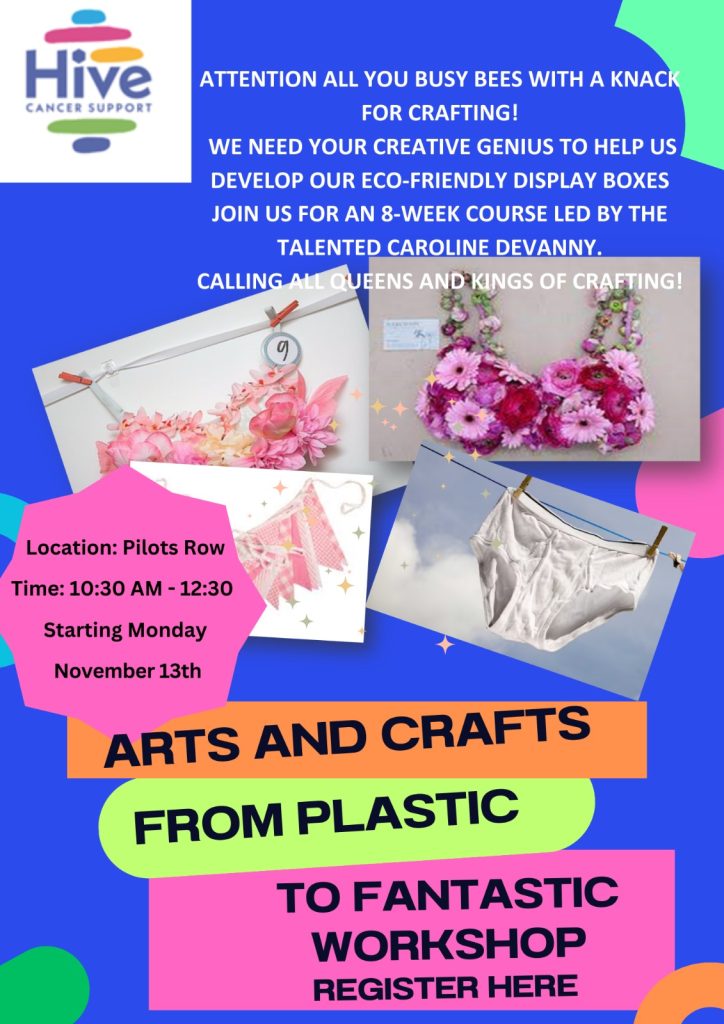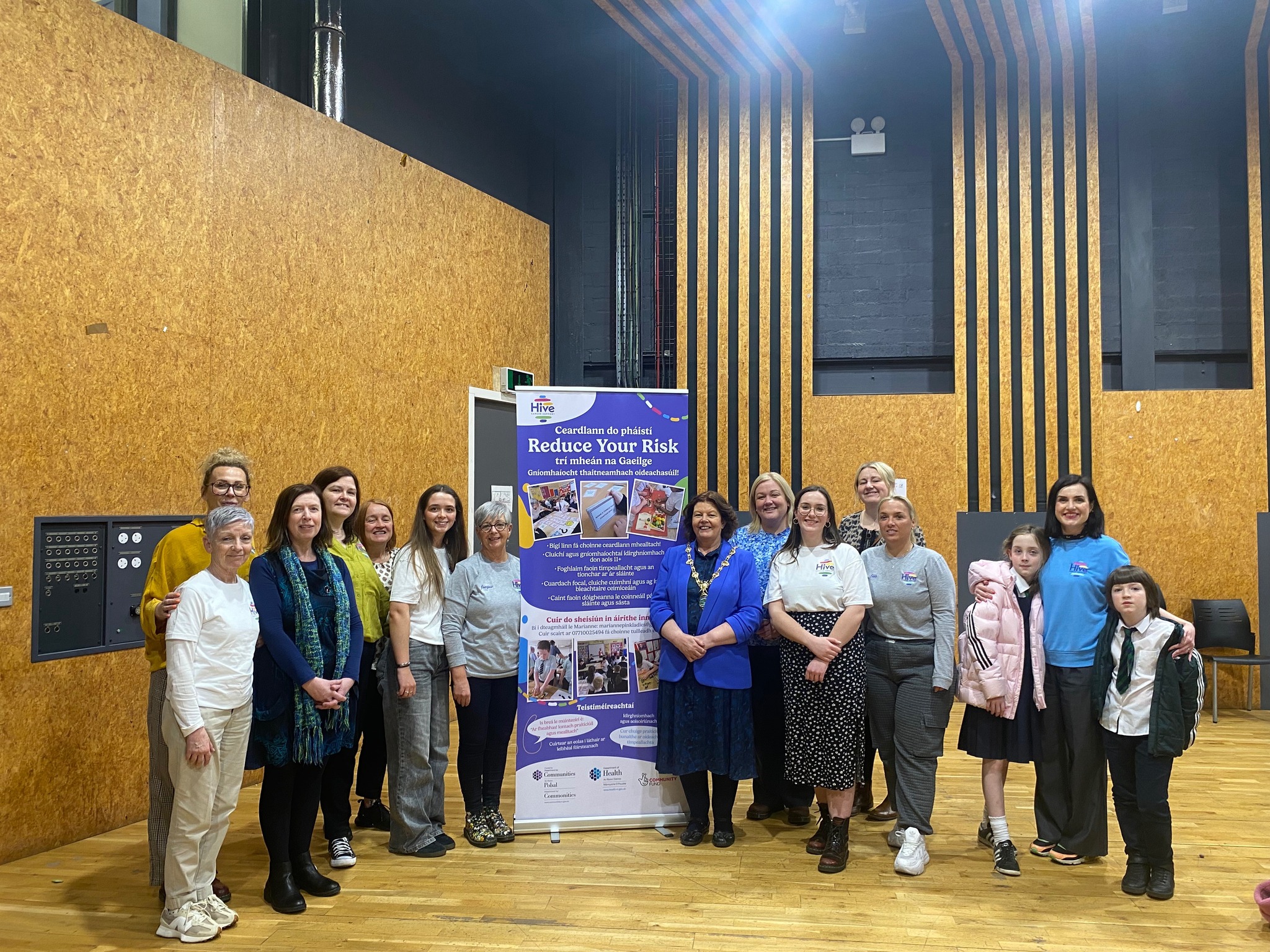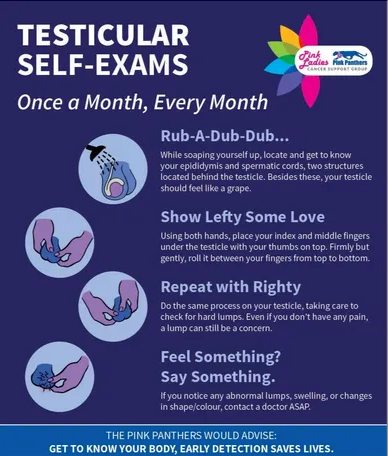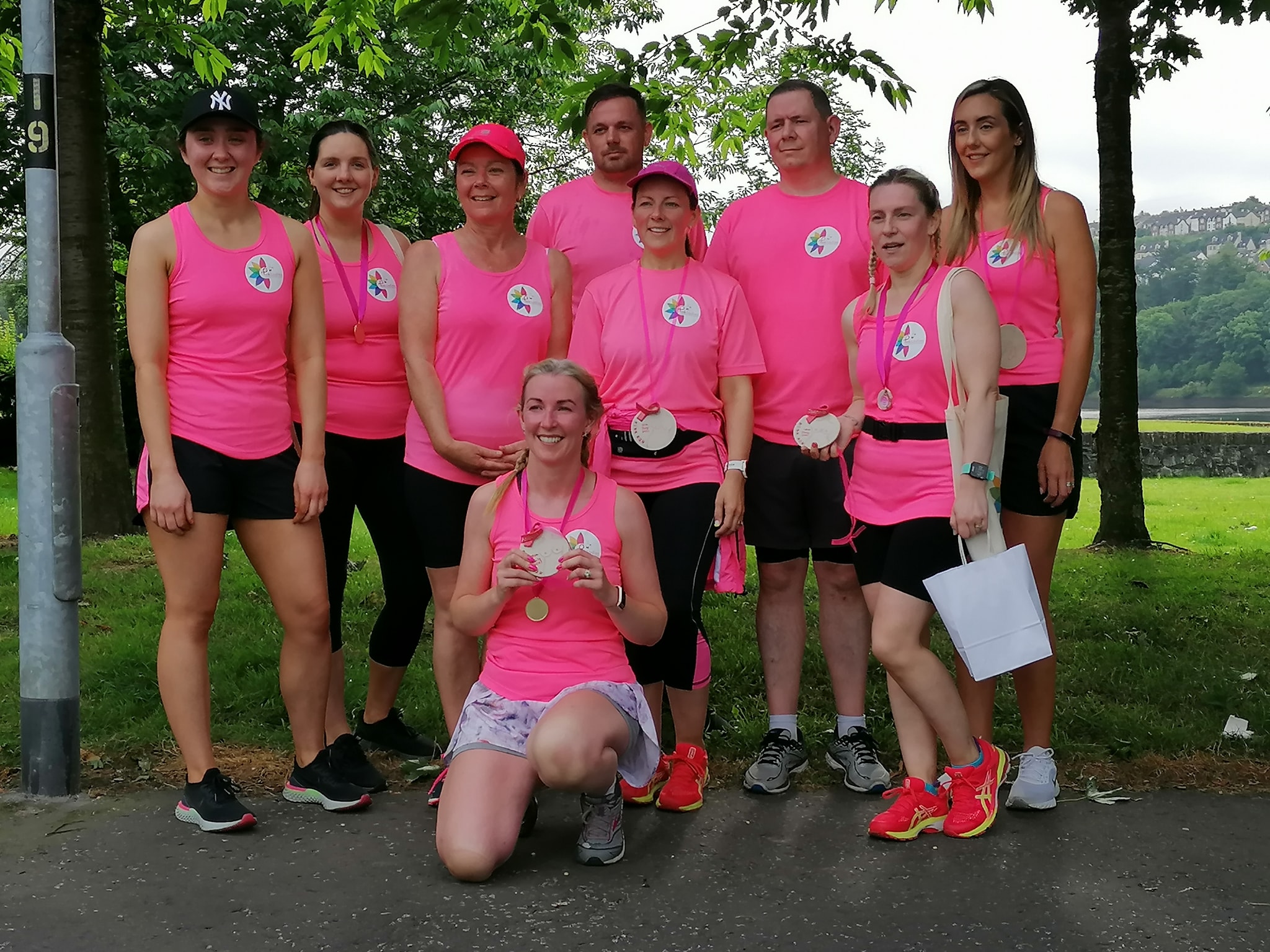Education

WORKSHOPS
Our workshops give you the knowledge to pick up changes to your body early because early detection saves lives. We also deliver sessions on how to reduce your risk of developing Cancer by making informed choices. Our sessions can be tailored to meet the age and needs of all groups such as Cancer thrivers, children, parents, and pregnant women.
Female Awareness Sessions
This hour-long session, endorsed by the Public Health Agency, covers the signs and symptoms of Cancers that affect women. We will show you how to look and feel for changes and teach you what to do next if you find anything.
Male Awareness Sessions
This informative session can be delivered to groups of any size and focuses on the signs and symptoms of male Cancer. You will learn what to look for and what to do if you notice any changes.
Adults: Reduce Your Risk
Learn about ways to reduce your risk of developing Cancer and other illnesses by making small, easy changes to your life. This session teaches you about the hormone system and how chemicals called endocrine disruptors can play havoc with it. We also highlight affordable alternatives and useful resources to assist you to make the necessary changes.
Kids: Reduce Your Risk
These sessions are for school children of all abilities aged Primary 7+, which educates them on the ways to reduce their exposure to harmful chemicals.

Big call out to all our Pink Ladies, Panthers and Carers. A chance to help us develop our promotional kit for Male and Female awareness stalls, having fun making paper bras, paper y front and other non plastic props for our awareness stall. Chat, Craic and Craft. Register here! https://forms.gle/i9njVVGB12gnR7Ey7
Irish Language RYR
In March we launched an Irish language version of its popular children’s work shop.
Hive Cancer Support’s ‘Reduce Your Risk’ session teaches children about the health impact of our environment and ways to reduce their exposure to harmful chemicals.
It was first devised three years ago by Jacquie Loughry, Education & Prevention Officer at Hive Cancer Support, after the success of the ‘Reduce Your Risk’ work shop for adults.
Translating the work shop into Irish will help us fulfil our mission to provide cancer prevention information to all.
“This is another step forward for us in bringing our cancer prevention message to everyone,” said Jacquie. “Cancer doesn’t discriminate- it knows no borders or any one language and we can’t pick and choose what prevention risks to talk about.
“We have always prided ourselves in giving information on cancer prevention in all its forms.”
She continued: “We wanted to present the information at an age appropriate level, with information that was pertinent to children and young people age 10+ of all abilities.”
The children’s version of ‘Reduce Your Risk’ is aimed at pupils in P7 and above and was developed in consultation with teachers and students.
It shows the environmental and the health impacts of what we eat and drink and the products we use on our bodies.
The Reduce Your Risk sessions in Irish, which was translated by Ulster University student Sinead Magowan has been successfully piloted with pupils at Bunscoil Colmcille and are now available for booking.
Hive Cancer Support also deliver the adult version of ‘Reduce Your Risk’, female cancer awareness sessions and male cancer awareness sessions.
If you would like to book any of the Hive Cancer Support Awareness courses please contact Marianne Flood, Community Education and Marketing Assistant on mariannepinkladies@gmail.com

INFORMATION & SUPPORT
Below you will find details on some specific types of Cancer. We strive to provide information about each to help you understand the facts.
- Breast Cancer
Breast Cancer is the second most common type of Cancer in women in Northern Ireland after Non-Melanoma Skin Cancer. Breast Cancer can occur at any age. However, the risk of developing it increases with age. About 8 out of 10 cases of Breast Cancer happen in women over 50. If it is found early, there is a better chance that treatment will be successful. It is also important to understand the risk factors for Male Breast Cancer, particularly because men are not routinely screened for the disease and do not think about the possibility that they will get it.
- Screening for Breast Cancer
All women aged 50-70 are invited to attend a Mammogram at their local Breast Screening unit every three years. Women over 70 are not routinely invited for Breast Screening although they are encouraged to call their local screening unit to request Breast Screening every three years. Breast Screening uses a low-dose X-ray test called a Mammogram to check the breast for signs of Cancer.
- Cervical Cancer
Cervical Cancer is when abnormal cells in the lining of the cervix grow in an uncontrolled way. The cervix is part of the female reproductive system and is in the lower part of the womb. It is the opening to the vagina from the womb. The main symptom is unusual bleeding from the vagina. Finding changes in the cells through screening can help to prevent Cancer developing.
- Prostate Cancer
The prostate is a gland found at the base of the bladder wrapped around the tube (called the urethra) which carries urine out of the penis. It is about the size of a golf ball and its job is produce fluid which carries sperm. The symptoms for Prostate Cancer can be similar to those found in men but for most men there are no symptoms. Therefore, it is important that you discuss any symptoms you have with your doctor.
- Ovarian Cancer
Ovarian Cancer is when abnormal cells in the ovary begin to grow and divide in an uncontrolled way, and eventually form a growth (tumour). The symptoms of Ovarian Cancer can be very vague, particularly when the disease is in its early stages.
- Testicular Cancer
It’s best to do a Testicular Self Examination during or right after a hot shower or bath. The scrotum (skin that covers the testicles) is most relaxed then, which makes it easier to examine the testicles. We would advise conducting a self-examination once a month, every month. How to conduct a testicular exam at home:
Helpful Tools
Here you will find information brochures and useful apps to help you identify signs of Cancer and reduce your risk.



